
Written By:
 Dr. Rashi Bahuguna
Dr. Rashi Bahuguna
 Dr. Rashi Bahuguna
Dr. Rashi Bahuguna
Published On: 24 Nov, 2020 4:03 PM | Updated On: 23 Feb, 2026 2:06 PM
Moderna Vaccine Update India Status
Moderna is an unapproved vaccine that has been approved as an Emergency Use Authorization (EUA) vaccine by the US Food and Drug Administration to prevent the spread of COVID-19 disease. Moderna is a nucleoside-modified mRNA that encodes for viral spike (S), a SARS-CoV-2 glycoprotein, as well as other ingredients.
Side Effects
Moderna vaccine side effects after First Dose
After the first dose following adverse reactions are being reported as the first dose is considered the prime dose and helps the body to recognize the virus.
a. Clinical trials
1.Pain at the site of injection
2.Fatigue,
3.Headache,
4.Myalgia,
5.Arthralgia,
6.Chills,
7.Nausea,
8.Vomiting,
9.Axillary swelling or tenderness
10.Fever,
11.Swelling at the site of injection
12.Erythema at the site of injection
b. Post Clinical Trials
Severe allergic reactions including anaphylaxis with symptoms like
1.Difficulty breathing
2.Face and throat swelling
3.Fast heartbeat
4.Bad rash all over your body
5.Dizziness
6.Weakness
Moderna vaccine side effects after the Second dose
After the second dose, the side effects of the initial dose become more intense and severe. The second dose is called the booster dose that further cements the immune response or exaggerates the existing response after the first dose.
1.Severe pain at the site of injection
2.Difficulty breathing
3.Severe fatigue
4.Severe headache
5.Severe myalgia
6.Severe arthralgia
7.Severe chills
8.Severe nausea
9.Severe vomiting
10.Severe axillary swelling or tenderness
11.Severe fever
12.Severe swelling at the site of injection
13.Severe erythema at the site of injection
Is the Moderna vaccine effective against the new COVID Mutant Strain?
For people who received two doses of the Moderna vaccine and were not previously infected, the vaccine was 94.1 percent successful in preventing COVID-19 disease. In clinical trials, the vaccine was shown to be more effective in people of all ages, races, genders, and ethnicities who had COVID-19 signs and symptoms. In clinical trials, relative to placebo, very few people were admitted to the hospital after receiving the Moderna vaccine.
Moderna first dose efficacy
After 14 days of the administration, the Moderna vaccine has been shown to be 92 percent effective in preventing COVID-19 infection.
How long does the Moderna vaccine last?
It causes immunity for at least 6 months, according to a study published in the New England Journal of Medicine in Boston. The research was carried out on new COVID-19 variants.
Before receiving a vaccine, patients must provide the following information to their health care providers:
1. If the patient is allergic to the vaccine, has a fever, has a bleeding disorder, is on a blood thinner, is immunocompromised, or is taking a medication that affects immunity.
2. Women who are pregnant or breastfeeding
3. If any of the patients who received the Moderna vaccine had previously received a COVID-19 vaccine.
Special Population
1. Pediatric population
The safety and efficacy of Moderna vaccines in children and adolescents less than 18 years of age have not yet been studied, so no data is available; hence vaccination should be avoided.
2. Pregnancy and breastfeeding
Since the vaccine's effect on the fetus and newborn has not been studied, it is not recommended for use during breastfeeding or pregnancy.
3. Patients who are taking a blood thinner or an anti-coagulant
The vaccine can be provided intramuscularly to patients who are starting new anticoagulants and whose international normalized ratio is below the therapeutic range's upper limit. Patients on anticoagulants that are in stable condition may obtain the vaccine, but bleeding can take longer to stop in these patients, resulting in upper arm bruising. Since patients with bleeding problems are at risk of developing hematomas, a fine needle is used for the procedure. In case of any query, the patient should consult a doctor who prescribed anticoagulant therapy.
4. Patients with allergy to Moderna ingredients
Patients with serious allergies to any of the Moderna ingredients should not be vaccinated.
Patients that have other allergies, such as environmental allergies, food allergies, pet allergies, venom allergies, or latex allergies, but do not have an allergic reaction to vaccine ingredients, may be vaccinated. Patients who have had allergic reactions to oral drugs in the past or who have a family history of allergy may also be vaccinated.
5. Immunocompromised patients
Patients with a weakened immune system or who are on immunosuppressive therapy, such as organ transplantation, may develop severe COVID-19 infection due to the vaccine, but there is no evidence of the vaccine's safety and effectiveness in these patients.
6. Elderly population
No dose adjustment is necessary for the elderly population ≥65 years of age, but adequate data is not available on the elderly population, so vaccination should be avoided.
7. Hypersensitivity and anaphylaxis
After vaccine administration, anaphylactic reactions can occur, so special medical attention should be given to such individuals, and hence an individual should be observed for 15 minutes after vaccination. The individuals who experienced hypersensitivity reaction after the initial dose should not be administered the second dose of vaccine.
8. Anxiety-related reactions
After vaccination, anxiety-related reactions like vasovagal reactions (syncope), hyperventilation, or stress‐related reactions can occur after vaccine administration as a psychogenic response to injection, and hence precautions are necessary to avoid injury because of fainting.
9. Concurrent illness
Patients suffering from acute severe febrile illness or acute infection should not be administered the vaccine as it can cause serious side effects, but vaccination should not be avoided in a low-grade fever of infection.
10. Breast-feeding
It is not known whether the Moderna vaccine is excreted in human milk or not as studies have not been established, so vaccination should be done cautiously.
11. Fertility
Animal studies do not indicate direct or indirect side effects concerning fertility or reproduction.
Is the Moderna vaccine effective against variants?
Recent studies have shown that new SARS-COV-2 variants such as B.1.1.7 and 501Y.V2 have no effect on the efficacy of the Moderna vaccine, indicating that the vaccine is still effective against these variants. However, data analysis on the efficacy and safety of the Moderna vaccine on variants is still undergoing trials.
Concluding Note
Moderna vaccine is approved for emergency use to prevent COVID-19 disease and has a variety of indications and contraindications, including allergic reactions, pediatric and elderly populations, anxiety-related reactions, pregnancy, breastfeeding, and fertility, among others. As a result, it can cause a variety of adverse reactions or side effects, some of which can be fatal to the person receiving the vaccine. To protect patients from severe or fatal conditions, health care professionals are expected to disclose side effects or adverse reactions caused by vaccines.


.jpg)
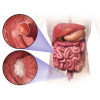
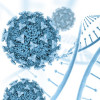
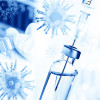
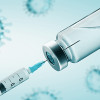
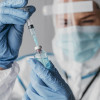
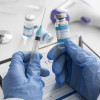
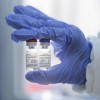
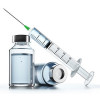
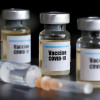
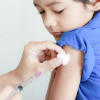
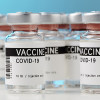
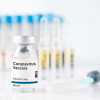

Please login to comment on this article